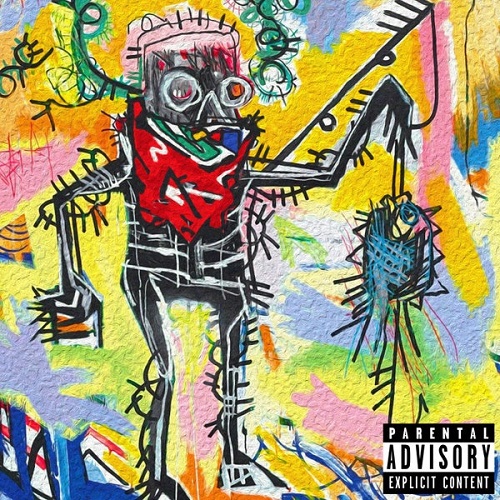Mach-Hommy has not always chased success. Like some other underground heroes, he has shunned the medias for a while. Not much is known about his identity, and he is always masked, his face hidden behind the Haitian flag on his bandana. Also, his lyrics are cryptic. He mixes creole with English, refuses to write them down and, along with Your Old Droog, asked to remove them from the Genius website.

Mach-Hommy doesn't want any exegetes. Interpreting his words is to be left to the listeners, according to their sensibilities. Moreover, some of his records are sold at exorbitant prices. And he left Griselda Records just after his cult H.B.O. album, before the Buffalo label got exposed to larger audiences, through new distribution contracts and alliances.
But in 2021, things have changed. Mach-Hommy is back to Griselda Records and he reconciled with Westside Gunn, who supports him on Pray For Haiti. He is the album's executive producer, and he features three times there, adding his squalling rap, onomatopoeias, and brat-like voice to the quiet tone of the other. Such is the case with "Folie A Deux", for example, which is actually a "folie à trois", Keisha Plum supporting the two guys with a bit of spoken word.
With his voice that meanders effortlessly from rumbling to thundering, and that sings at times, Mach-Hommy is self-sufficient. Nonetheless, he is assisted by many. Some guests are expected, like Tha God Fahim, his Dump Gawd acolyte, but others less, like the uncredited Melanie Charles, another singer of Haitian descent. As for the music, supplied among others by Camoflauge Monk and Conductor Williams, Pray For Haiti benefits from the best of the Griselda formula. This is boom bap, but with no "boom" and no "bap", a bit of jazz and soul, and clever drum plays, like on the outstanding Denny LaFlare produced "Ten Boxes - Sin Eater".
Mach-Hommy being back to Griselda, this album is better marketed than the previous ones. It is also – relatively – accessible, and one of the most celebrated in 2021, along with its successor Balès Cho. It is praised like H.B.O should probably have been, five years earlier. It confirms what the Newark rapper says on the first track, "The 26th Letter":
Mach-Hommy is an icon, end quote,
this gon' be the year I get my python trenchcoat
That being said, the record is not solely about him. It is also, once again - the title says it - about Haiti. A few month after its president was murdered - the last misfortune of a very long series - Mach-Hommy asks us to pray for his martyr country. He wants 20% of its sales benefits to go to a fund that supports IT and coding courses there. Also, on the "Kreyol" skit, he praises the richness of his native language.
On tracks such as "The Stellar Ray Theory", Mach-Hommy talks about the children of Haiti. He plays with weather metaphors to celebrate their resilience, like when he sings "la pluie a tombé, nous pas mouillés": the rain has fallen, but we're not wet. He shares his experience with starvation on "Kriminel". He talks about his people like when, through his mother, he pays tribute to black women on "Marie".
On "Au Revoir", a song supported by DJ Green Lantern, the rapper wants to "make sure that everybody and they mama heard of Mach-Hommy". Judging by his sad tone, though, he is not driven by his appetite for success. Mach-Hommy has other goals, he has other statements to make.
